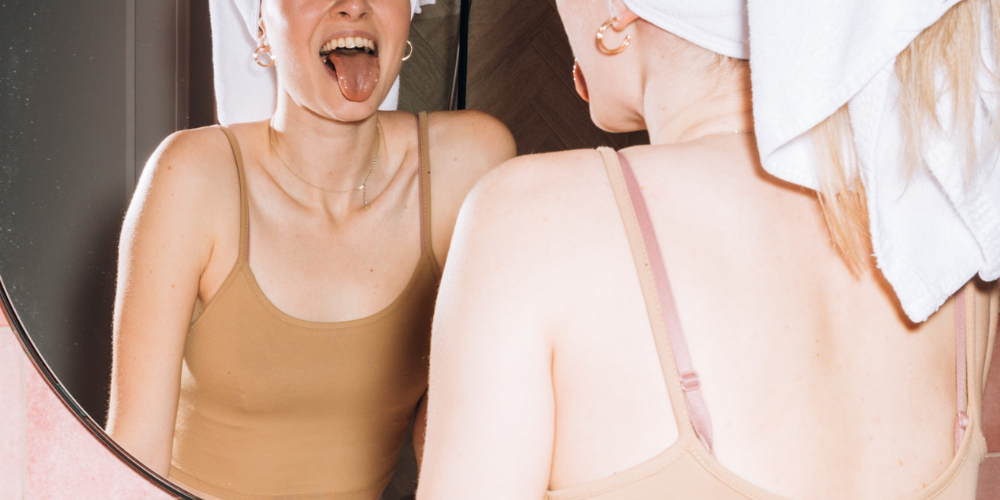
For many of us, the only time we really think about our tongue is when we accidentally bite it, or when food has a really strong taste, texture, or temperature.
Debris from all that food can contribute to bacteria on our tongues, but tongue scraping is an ancient Ayurvedic practice you can still use today to help keep your mouth clean and fresh.
Now that you’re thinking about your tongue, you may be wondering “is brushing and flossing enough?” Let’s figure it out.
What is a Tongue Scraper?
A tongue scraper is a tool you use to help clean your tongue after brushing and flossing. You run it from the back to the front of your tongue using light pressure, and rinse it between each use.
Tongue scrapers come in various shapes and sizes. They’re usually made of plastic or stainless steel. If you’d like to pick one up, head to the drugstore or check Amazon. They’re relatively inexpensive.
When to Use a Tongue Scraper
If you’re considering whether you should use a tongue scraper, you may want to know where it would fit into your routine.
The best time to use a tongue scraper is in the morning, right after you brush and floss your teeth. This is because your mouth doesn’t produce as much saliva while you sleep. You’re also not eating and drinking while you’re snoozing, so your mouth isn’t getting moistened as often as it is during the day. These factors enable bacteria to multiply.
Benefits of Tongue Scraping
So if tongue scraping has been around for centuries, that means it must have some benefit, right? Some studies agree, suggesting tongue scraping can remove bacteria and improve bad breath more than brushing. Other reported benefits include:
• Enhanced taste. When you scrape the surface of your tongue, it’s almost like starting with a fresh palette
• Better dental health. Tongue scraping may remove bacteria that inflame your gums and cause cavities
• Better general health. Scraping your tongue may prevent toxins from being reabsorbed into your body
• Improved digestion. Enzymes in your saliva start to break down food. If your taste buds are blocked because mucus has accumulated on your tongue, the message to your brain that activates digestive enzymes may be impaired. Tongue scraping should get your tongue ready for action
• A healthy-looking tongue. The accumulation of bacteria and debris on your tongue can cause it to look whitish and opaque. Scraping can maintain its healthy appearance
The Final Word on Using a Tongue Scraper
Tongue scraping isn’t a requirement for good dental hygiene, yet it doesn’t hurt to include it in your routine, according to the American Dental Association.
The Canadian Dental Association, on the other hand, suggests brushing your tongue with a toothbrush or using a scraper to help keep your breath fresh.
So should you use a tongue scraper, given the benefits and feedback from the expert associations? Ultimately, the choice is yours.
Tongue scraping obviously isn’t a substitute for brushing and flossing, but if you have the time to incorporate it into your dental care routine, or like the way your mouth feels after scraping your tongue, go for it.
Disclosure: We are a professional review and product rating website and mobile app that receives compensation from the companies whose products we review and rate. We are independently owned and the opinions expressed here are our own interpretations of a trusted source.
Should You Use a Tongue Scraper? was originally published in Think Dirty on Medium, where people are continuing the conversation by highlighting and responding to this story.